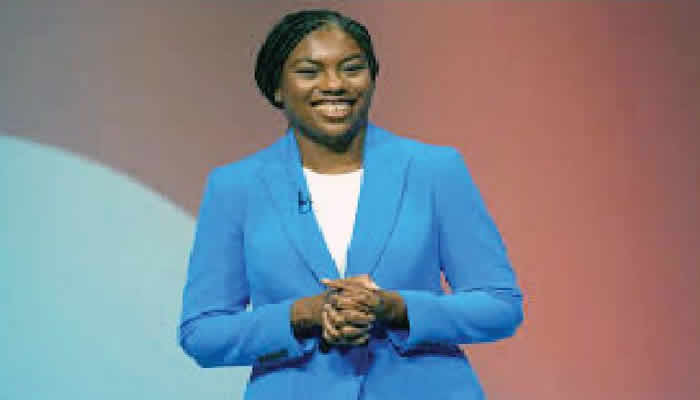
One saying that has gained currency is: “Respect is earned, not given.” Many say it with so much conviction that it has acquired the tag of truth. But like many not-well-thought-out expressions, when it is interrogated, it falls flat on its face. The reason such expressions gain traction is that many people like to repeat whatever those they see as role models or influencers have said without making any attempt to analyse such. Hollow statements in this category include: What God cannot do does not exist; Power is not given but taken, etc.
To understand the hollowness of the statement “respect is earned,” let us look at a few scenarios. The first one involves a lady who checks out of a hotel room, throws the key of the room to the receptionist, responds haughtily and condescendingly to the receptionist’s greeting, and walks off. A few steps away, she meets a federal minister and her demeanour changes. She smiles as she greets the minister with a display of humility.
Behind her, another guest checks out, greets the receptionist warmly, and asks how his day has been. As the second lady steps a few metres away, she runs into the same federal minister. She greets the minister warmly and walks on. The way she greeted the receptionist was the way she greeted the minister. In fact, she was friendlier to the receptionist than the minister, even though the receptionist had less to offer her.
The scene changes to that of a semi-urban community. A retired teacher who supports the youths of his community in their academics and sports is walking towards his home. Some boys hanging around the street ignore him and even make jokes about his shoes and head. Minutes later, another man from the community comes along. This second man is chauffeur-driven in a big car. The same boys rush towards his car to hail him. He throws out a wad of notes. They scramble for the notes while he drives past.
Please what did the receptionist do to deserve being treated without respect by the first guest? He showed courtesy to her, yet she responded with disdain, for no other reason but perhaps the social status of the receptionist. Presumably, the receptionist was below her and did not deserve any respect. On the contrary, the second guest saw the receptionist as a human being who deserved to be treated with respect and dignity.
In the same vein, the retired teacher did not do anything wrong to deserve the treatment from the boys. He was known for his good character. He offered free services to the community since his retirement. His only crime was that he was not rich and liked things done properly. Conversely, the rich man was respected because of his money.
The global standard is that human beings don’t need to do anything special to earn respect. Every human being naturally deserves to be accorded respect irrespective of social status, financial status, health status, gender, age, race, ethnicity, religion, political affiliation, etc. Respect is synonymous with treating people with dignity.
On December 10, 1948, the United Nations General Assembly in Paris proclaimed the Universal Declaration of Human Rights. The resolution is called the General Assembly Resolution 217 A. In the preamble, the first point the UN stated was:
“Whereas recognition of the inherent dignity and of the equal and inalienable rights of all members of the human family is the foundation of freedom, justice and peace in the world….”
Note the mention of “dignity” in the preamble. According to Dictionary.com, “dignity” means “the state or quality of being worthy of honour or respect.”
The resolution, which is regarded as a milestone document in the history of human rights, was drafted by representatives with different legal and cultural backgrounds from all regions of the world. Article 1 of the resolution says: “All human beings are born free and equal in dignity and rights. They are endowed with reason and conscience and should act towards one another in a spirit of brotherhood.” Note again the use of the word “dignity.”
Almost two centuries before that, Thomas Jefferson, drafting the American Declaration of Independence, stated right in the first sentence: “We hold these truths to be self-evident, that all men are created equal, that they are endowed, by their Creator, with certain inalienable rights, that among these are life, liberty, and the pursuit of happiness.” Given the era in which this text was written, it is understandable that the language is not gender-neutral. Readers should, therefore, substitute “all men” for “all human beings.”
The core of the American Declaration of Independence was on the fact that all human beings are equal. The document says that it is a “truth” which is “self-evident” or obvious to everyone. The equality of human beings naturally implies that all human beings should be treated with respect. They don’t need to do anything before that is extended to them. Like the technical language of mobile phones or computers says, treating people with dignity and respect should be the “default mode” of human beings.
That is why true democratic countries treat even suspects and criminals with respect. A man shoots the president of a country and is caught, or a psychopath (who serially decapitates his victims) is caught. Ordinarily, one would feel justified for such a despicable character to be slapped, kicked or even tied to a car and dragged through the streets. But that is completely against fundamental human rights and respect for the human person. Even when such a person is sentenced to death or to life imprisonment, it is still forbidden to treat that person without dignity. It is usually surprising to many to be told that someone who denied others their right to life deserves to be treated with dignity. But that is the way it is because every human being deserves to be respected. Even corpses deserve to be treated with decorum because they still represent the image of human beings.
Respect does not mean love or liking. Love and respect are not mutually inclusive. You don’t need to love or like someone to respect the person. You may choose not to smile at people or play with them. That is your right. But that should not stop you from showing respect or courtesy to them. Not liking someone should not be a reason to be rude to the person. It does not matter if it is at the workplace, school, community, association, club, marriage, etc.
Any time you hear someone say “respect is earned, not given”, there is a high degree of probability that the person finds it easy to insult people. It is usually a justification for rudeness. A person who is not naturally rude is not rude to people even when supposedly provoked. The way people talk to others when they are angry or unhappy tells a lot about who they are, not who the people they are showing disrespect to are. People’s true self manifests when they are angry or relations break down, not when things are working well. A person who shows respect to another when the going is good but shows disrespect to the same person when the going turns sour is never imbued with respect. The change in that person was never caused by the recipient of disrespect. The person’s true character simply manifested.
Imagine two people who believe that respect is earned meeting each other and waiting for each other to earn the other person’s respect. Both withhold their respect for the other person while waiting. Nothing happens. Both of them then part ways, concluding that the other does not deserve respect. What a ridiculous world such would be!
The question then arises: When someone acts in a way that is demeaning, dishonest, disrespectful, unfaithful, shameful, etc, should that person still deserve to be respected? The truth, which may be hard for many to accept, is that a person’s actions may be undeserving of respect, but the person is still deserving of respect as a human being.
But even if one disagrees with that, it follows better logic to say that respect is deserved until someone proves otherwise. Saying that respect is earned, and not given, is a subtle way of justifying bad manners.
– X: @BrandAzuka







